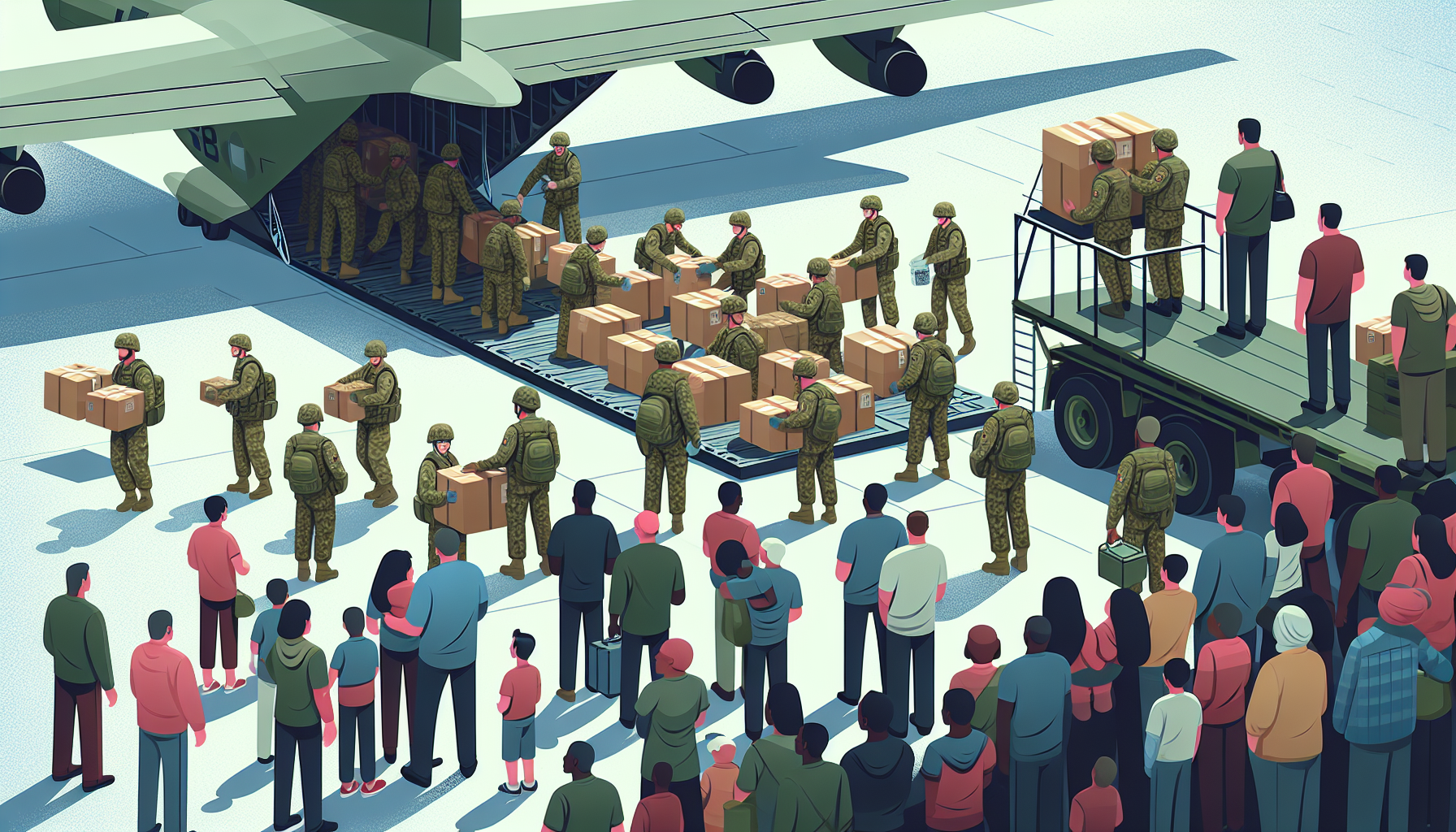Definition
Deployment in military operations refers to the movement of armed forces and their logistical support infrastructure to a specific location for combat operations. This term can include the process of assembling, organizing, and transporting these resources. It is a critical phase of any military mission that ensures readiness and efficiency in combating threats.
Key Takeaways
- Deployment in military operations refers to the movement of armed forces and their logistical support infrastructure around the world, often to serve in wars or military engagements.
- It involves various stages including preparation, transportation, establishment and termination. Each stage requires detailed planning and coordination.
- The length and nature of deployments can vary depending on the mission, the geographical location, the international context, and the specific branches of the military involved.
Importance
The term “deployment” in military operations is of critical importance as it describes the movement of armed forces and their logistical support infrastructure around the world, in response to international crises or to protect national interests.
Deployment not only involves the physical movement of troops, equipment and supplies but also the strategic planning for such operations, ensuring soldiers are effectively positioned and supplied for their mission.
This could range from humanitarian assistance to combat operations.
A successful deployment would mark the ability of a military to respond swiftly and efficiently to emerging threats or needs, making it a key indicator of a military’s readiness and operational capabilities.
Explanation
Deployment, in military context, is a critical process where armed forces are moved from their home base to a designated theater of operations. This term describes a stage of readiness and commitment in military affairs that goes beyond routine training or exercises.
Primarily, the purpose of military deployment is to position assets strategically –both personnel and resources– in order to perform operations or missions pertinent to national security or military objectives. It is essentially about getting military resources where they need to be, to ensure optimal readiness and effectiveness in potential conflict scenarios.
What specifically this entails can vary greatly. For instance, deployment may involve soldiers being sent overseas for active combat or peacekeeping missions, moving equipment or weaponry to a site for strategic positioning, or positioning naval vessels across different areas of the ocean.
Deployment thus plays a significant role in how a military force responds to a given situation, creating a balance between maintaining homeland security and projecting power abroad, as required. It is an intricate process involving careful strategic planning, taking into account a range of factors including geopolitical implications, logistics, force protection measures, and local sociocultural sensitivities, among others.
Examples of Deployment
Operation Desert Storm (1991): This was a large-scale deployment of U.S. and Coalition troops in response to Iraq’s invasion of Kuwait. Around 697,000 troops were deployed to the Persian Gulf region to force out the Iraqi forces from Kuwait. This represents a wide-scale, international military deployment executed for defense purpose.
Operation Enduring Freedom (2001): In response to the 9/11 terror attacks, the U.S. deployed its military forces in Afghanistan. This operation aimed to dismantle Al-Qaeda and to remove the Taliban regime from power. This real-world example signifies the use of deployment for a counterterrorism mission.
U.S. Troop Deployment in South Korea: The U.S. has deployed about 28,500 troops in South Korea as a part of its commitment to defend its South Korean allies against threats from North Korea. This ongoing military deployment is an example of the defensive and deterrent role played by deployment in maintaining peace and stability in a specific region.
FAQs about Military Deployment
What is military deployment?
Military deployment is the movement of armed forces and their logistical support infrastructure around the world.
What are the types of military deployment?
The two main types of military deployment are peacetime and wartime deployments, but there can also be other types such as humanitarian aid and natural disaster response deployments.
How long does a military deployment last?
A typical military deployment can last from a few months to over a year, depending on the needs of the mission and the branch of military service.
What’s the process for preparation before deployment?
Before a deployment, the military personnel go through a preparation process which includes comprehensive training, medical evaluations, paperwork, family preparation, and other readiness procedures.
What are the challenges faced by military personnel during deployment?
During deployment, military personnel may face challenges such as separation from family, exposure to combat, living in harsh conditions, among other psychological and physical stressors.
What resources are available for families during a military deployment?
There are numerous resources available for families during a military deployment, including family readiness programs, support services, counseling, and community resources.
Related Military Operation Terms
- Active Duty
- Military Discharge
- Post Deployment Health Services
- Combat Related Special Compensation (CRSC)
- Post-9/11 GI Bill
Sources for More Information
- U.S Department of Defense: The official website of the U.S Department of Defense provides information on military operations including deployment.
- Military.com: This source offers a range of information about various aspects of the military, including deployment.
- U.S Army: The official website of the U.S Army, which provides a wide coverage on deployment and other related military operations.
- RAND Corporation: A research organization that develops solutions to public policy challenges to help make communities throughout the world safer and more secure, including military deployment studies.
 Benefits.com Advisors
Benefits.com Advisors
With expertise spanning local, state, and federal benefit programs, our team is dedicated to guiding individuals towards the perfect program tailored to their unique circumstances.
Rise to the top with Peak Benefits!
Join our Peak Benefits Newsletter for the latest news, resources, and offers on all things government benefits.




















